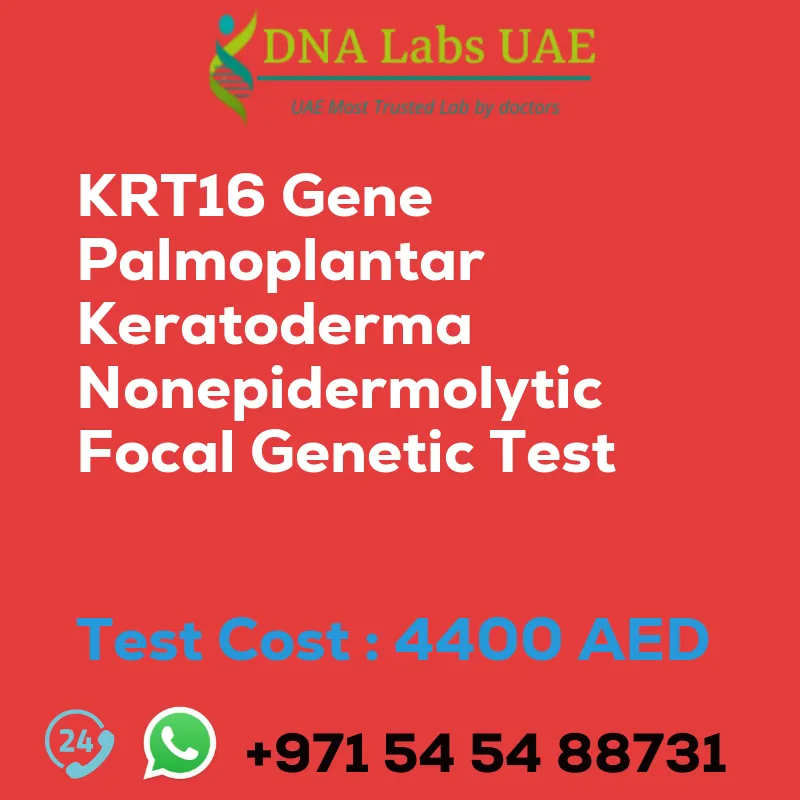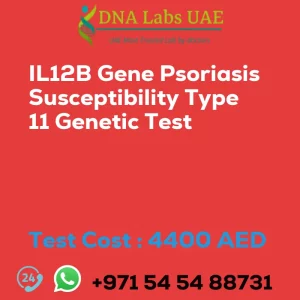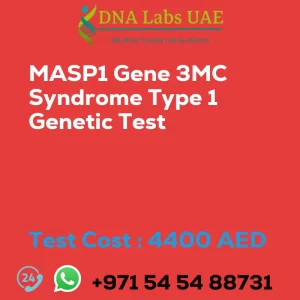KRT16 Gene Palmoplantar keratoderma nonepidermolytic focal Genetic Test
Introduction
The KRT16 gene is associated with a condition called Palmoplantar keratoderma, nonepidermolytic, focal. This genetic disorder affects the skin on the palms of the hands and soles of the feet, causing thickening and scaling of the skin in these areas.
Test Details
The KRT16 Gene Palmoplantar keratoderma nonepidermolytic focal Genetic Test is a type of NGS (Next-Generation Sequencing) genetic testing. This advanced sequencing technology allows for the simultaneous analysis of multiple genes. In the case of Palmoplantar keratoderma, nonepidermolytic, focal, NGS genetic testing can identify mutations or variations in the KRT16 gene that may be responsible for the condition.
Test Components and Price
- Components: KRT16 Gene Palmoplantar keratoderma nonepidermolytic focal Genetic Test
- Price: 4400.0 AED
Sample Condition
The test requires either blood, extracted DNA, or one drop of blood on an FTA card as a sample.
Report Delivery
The report will be delivered within 3 to 4 weeks.
Method
The test utilizes NGS technology for analysis.
Test Type
The KRT16 Gene Palmoplantar keratoderma nonepidermolytic focal Genetic Test falls under the categories of Osteology, Dermatology, and Immunology Disorders.
Doctor and Test Department
The test is conducted by a Dermatologist and falls under the Genetics department.
Pre Test Information
Prior to the test, it is important to provide the clinical history of the patient who is going for the KRT16 Gene Palmoplantar keratoderma nonepidermolytic focal NGS Genetic DNA Test. A Genetic Counselling session may also be conducted to draw a pedigree chart of family members affected with the KRT16 Gene Palmoplantar keratoderma nonepidermolytic focal NGS Genetic DNA Test gene KRT16.
Conclusion
Genetic testing for the KRT16 gene can provide valuable information for the diagnosis, genetic counseling, and potential treatment decisions for Palmoplantar keratoderma, nonepidermolytic, focal. It is crucial to consult a qualified healthcare professional or genetic counselor for the proper conduct and interpretation of the test.
| Test Name | KRT16 Gene Palmoplantar keratoderma nonepidermolytic focal Genetic Test |
|---|---|
| Components | |
| Price | 4400.0 AED |
| Sample Condition | Blood or Extracted DNA or One drop Blood on FTA Card |
| Report Delivery | 3 to 4 Weeks |
| Method | NGS Technology |
| Test type | Osteology Dermatology Immunology Disorders |
| Doctor | Dermatologist |
| Test Department: | Genetics |
| Pre Test Information | Clinical History of Patient who is going for KRT16 Gene Palmoplantar keratoderma, nonepidermolytic, focal NGS Genetic DNA Test. A Genetic Counselling session to draw a pedigree chart of family members affected with KRT16 Gene Palmoplantar keratoderma, nonepidermolytic, focal NGS Genetic DNA Test gene KRT16 |
| Test Details |
The KRT16 gene is associated with a condition called Palmoplantar keratoderma, nonepidermolytic, focal. This is a genetic disorder that affects the skin on the palms of the hands and soles of the feet, causing thickening and scaling of the skin in these areas. NGS (Next-Generation Sequencing) genetic testing is a type of genetic testing that uses advanced sequencing technology to analyze multiple genes simultaneously. In the case of Palmoplantar keratoderma, nonepidermolytic, focal, NGS genetic testing can be used to identify mutations or variations in the KRT16 gene that may be responsible for the condition. By analyzing the genetic code of an individual, NGS genetic testing can provide information about specific genetic variants that may be associated with the development of Palmoplantar keratoderma, nonepidermolytic, focal. This can help with diagnosis, genetic counseling, and potentially guide treatment decisions. It is important to note that genetic testing should be conducted and interpreted by a qualified healthcare professional or genetic counselor, who can provide appropriate guidance and support based on the results. |








